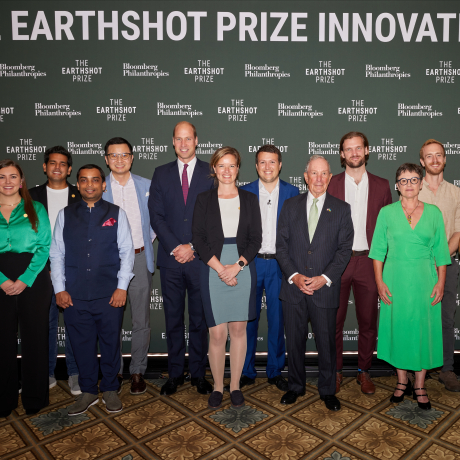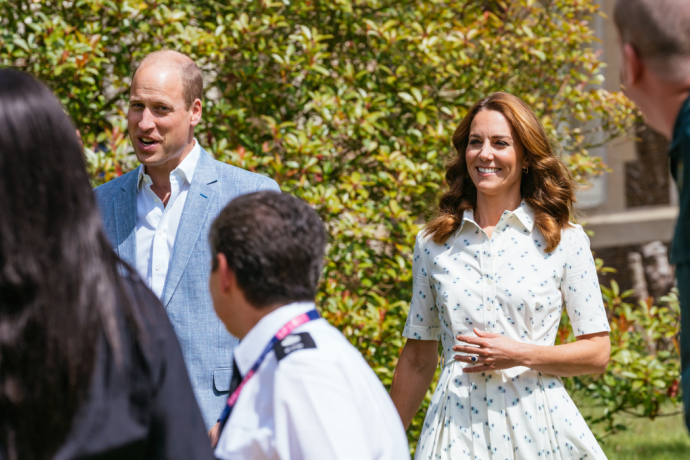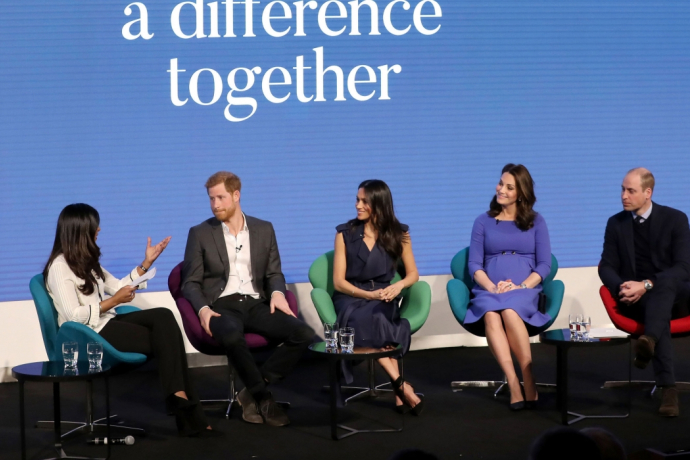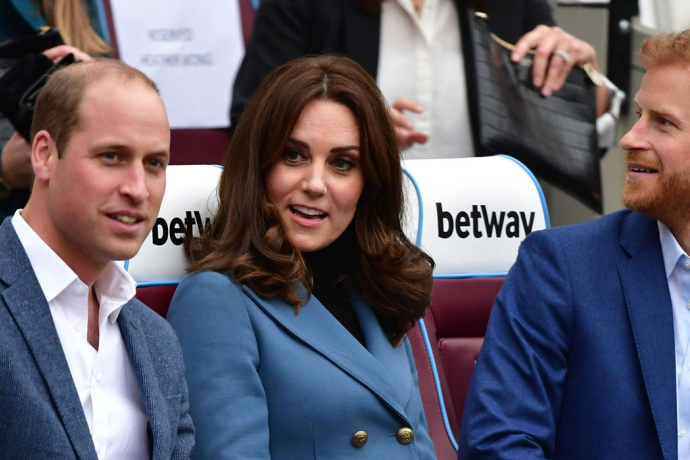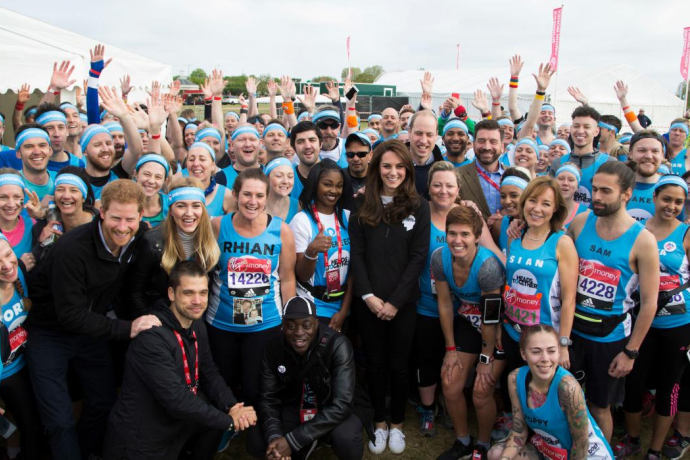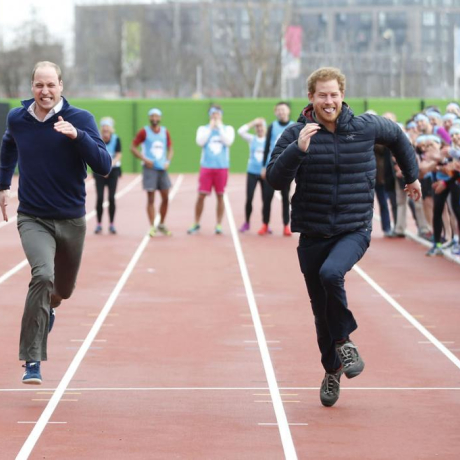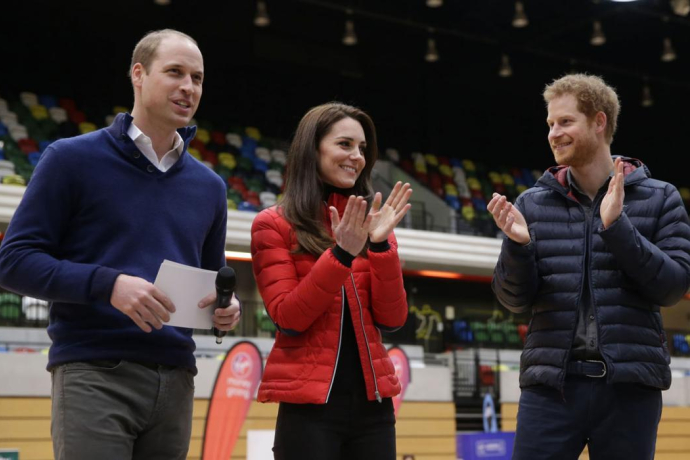A speech by The Duke of Cambridge at the Tusk Awards 2016
Published
Our natural heritage does not belong to us – I believe we simply hold it, in trust, for our children and grandchildren. Wherever we are in the world, we must all play our part and make the right decisions today to preserve the future.
Good evening ladies and gentlemen,
I am particularly delighted to be here once again at the Tusk Conservation Awards as we celebrate the exceptional achievements of our award winners and finalists this evening.
First of all, I would like to acknowledge the invaluable support of all of Tusks' corporate partners, in particular Investec, without whom these awards would not be possible. And, this year, I am particularly delighted that with the addition of I.S.P.S. Handa’s support, Tusk can now stage a gathering of leading conservationists in Africa to exchange ideas and encourage greater collaboration and support.
As ever, tonight I have been humbled by the sheer dedication and commitment that all of our 2016 nominees have shown, in preserving – against the odds – our precious natural world. To you all, I offer my heartfelt thanks and warmest congratulations.
We have heard about the remarkable life-long commitment of Manuel working to save the critically endangered Giant Sable in Angola and how, in the line of duty, he almost lost his leg in a vicious poacher’s gin-trap. The war being fought against poachers is brutal, with so many men and women dying to protect their communities' natural heritage. A very human tragedy, all too clearly brought home to me tonight when I met the family of Roger Gower, who tragically lost his life in Tanzania this year.
One cannot help but be inspired by Manuel; or by John protecting gorillas in Central Africa, or by Olivier, Rachel and Cathy who strive, day in, day out, to protect wildlife through community conservation. The number and quality of the nominations this year once again shines a spotlight on some remarkable people working across Africa as unsung heroes in their field. Their work is dangerous but vitally important – and we are immensely grateful for it.
But for conservation to succeed, they need help. They must be supported by a highly effective and well-funded chain of command and a system of integrated management that ultimately binds the work of the rangers on the ground with their senior wildlife managers; the vets; the scientific researchers; community development officers and law enforcement agencies. And it does not stop there – we must have the support of the judiciary and of Government if we are to succeed.
If that sounds complicated, let's remember that the illegal wildlife trade is the fourth biggest illegal trade in the world after drugs, weapons and human slavery. Its criminal overlords often engage in all these areas – so the bravery of our rangers and award nominees should be remembered in that brutal and difficult context.
This year, the international community has reaffirmed its commitment to tackle the illegal wildlife trade. Two overwhelming votes – one at the IUCN World Congress and the other at the CITES conference – both urging the closure of domestic markets in ivory and calling for the tightening of legislation.
I am encouraged by this and applaud the leadership shown to date by President Obama and by President Xi of China, as they pledge to close their respective ivory markets. But we need other Governments to follow their lead.
Our natural heritage does not belong to us – I believe we simply hold it, in trust, for our children and grandchildren. Wherever we are in the world, we must all play our part and make the right decisions today to preserve the future.
There is one person here tonight who has done more than almost anyone else to 'play his part' – someone who has literally gone to the ends of the earth to showcase the beauty of our planet’s wildlife and the critical need for us to preserve it.
Through his work and dozens of award winning films, Sir David Attenborough has inspired generations of conservationists to dedicate their lives to this cause. For this, in your ninetieth year, we at Tusk would like to take this opportunity to recognise and thank you, David, for your remarkable life-long contribution to protecting Africa’s wildlife.
Sir David, may I ask you to return to the stage for a small token of our appreciation.
Related content
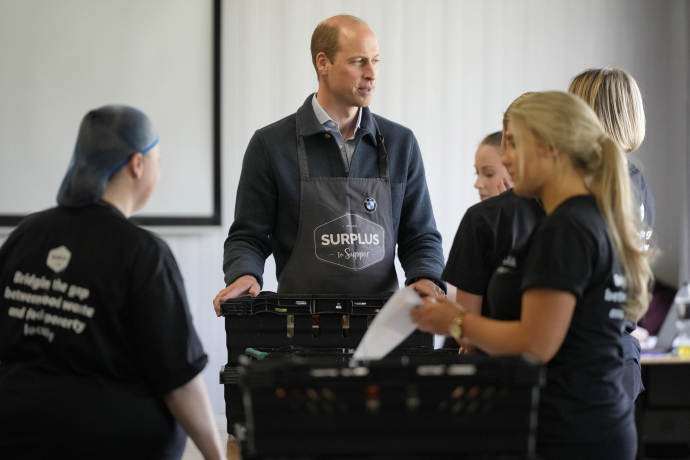
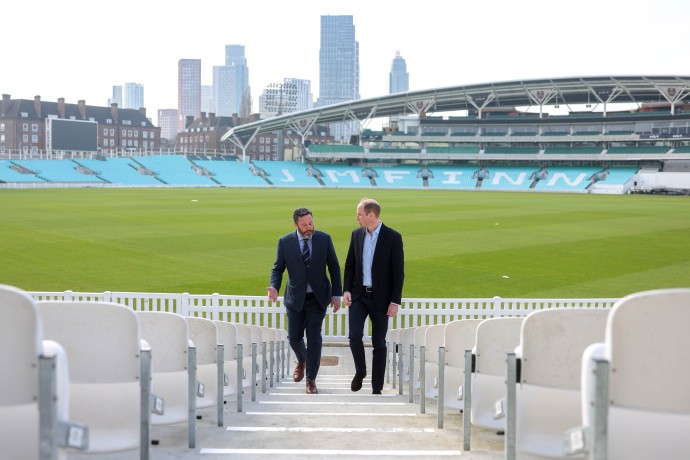
The Prince of Wales attended the United for Wildlife Summit
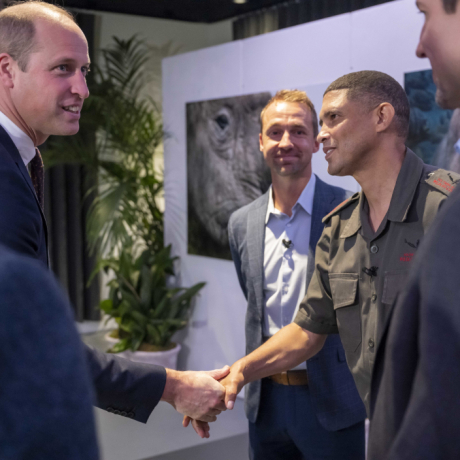
The inaugural Earthshot Prize Ceremony Awards London
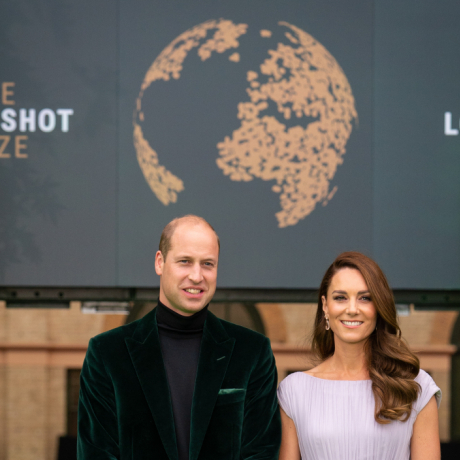
The Duke of Cambridge visited Microsoft Headquarters to learn how new technology is disrupting the illegal wildlife trade

The Duke of Cambridge attended The Royal Foundation’s Emergency Services Mental Health Symposium
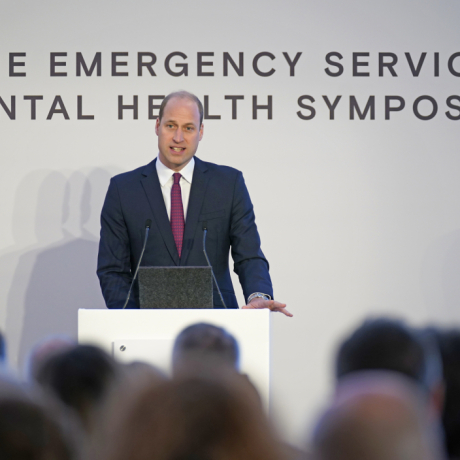
A speech by The Duke of Cambridge at a virtual meeting of the United for Wildlife Taskforces
Right now, there is a real chance to ensure that the urgent steps that the world must take to prevent future zoonotic disease pandemics are designed in a way that also helps...
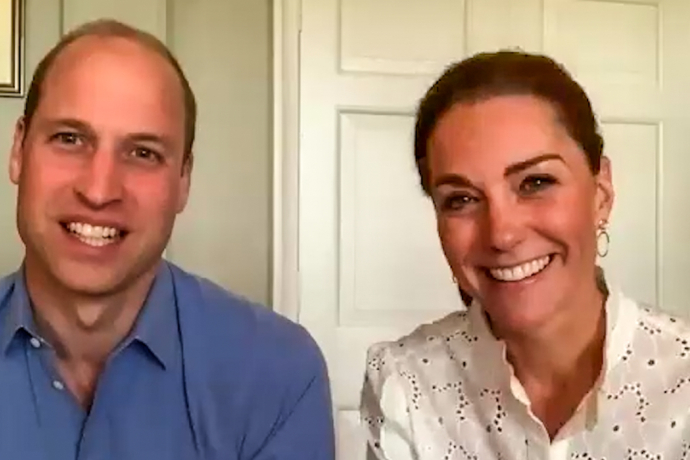
A speech by The Duke of Cambridge at the Tusk Conservation Awards
My generation and those following are acutely aware that we cannot simply carry on as we are.
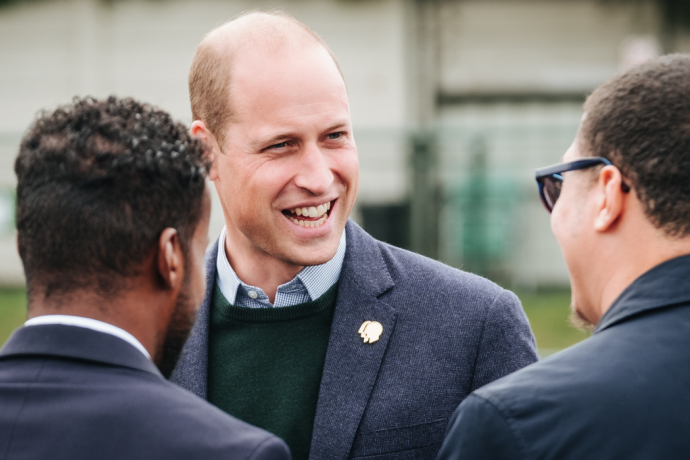
The King's Cup
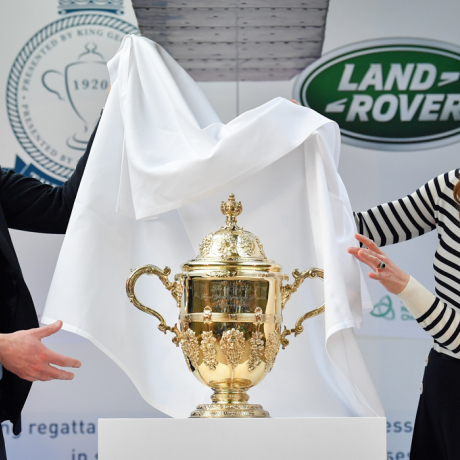
The Duke of Cambridge and the FA launch 'Heads Up' mental health campaign
A speech delivered by The Duke of Cambridge at a United for Wildlife Joint Taskforce meeting
It has taken a lot of hard work – and real commitment – to get to the point where you are all sitting here together today. And we should all feel proud that we’re starting to...
The Duke and Duchess of Cambridge and The Duke and Duchess of Sussex launch Shout
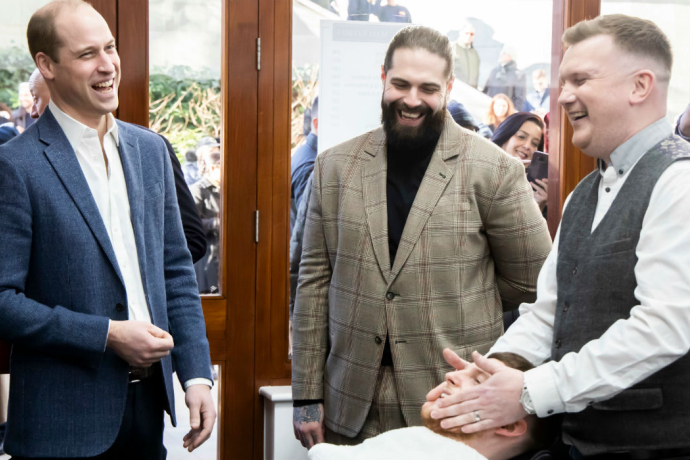
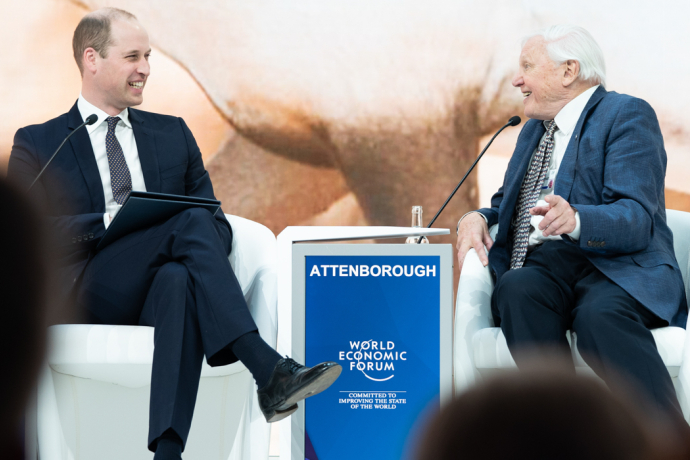
The Duke of Cambridge unveils new United for Wildlife declaration to tackle illegal wildlife trade
A speech by The Duke of Cambridge at the United for Wildlife Financial Taskforce Declaration Signing
This trade has become the fourth largest criminal trafficking enterprise in the world, with billions of pounds flowing into the black market.
A speech delivered by The Duke of Cambridge at the Workplace Wellbeing Conference
I am delighted that The Royal Foundation and Mind will be launching a new Workplace Wellbeing Programme in September to support employers across the country
A speech by The Duke of Cambridge at The Royal Foundation Forum
When we work together, we are greater than the sum of our parts." – The Duke of Cambridge on the impact of The Royal Foundation and its ability to bring people together to...
A speech by The Duke of Cambridge at the National Launch of Step into Health, London
Supporting veterans has always been a key plank of the work my brother and I have done through The Royal Foundation. The men and women of our armed forces who stand up to...

The Duke of Cambridge gives a speech at the Tusk Trust Ball
Enormous strides have been made in tackling the threat posed to so many species by the illegal wildlife trade.
The Duke and Duchess of Cambridge and Prince Harry celebrate World Mental Health Day
09 October 2017
A speech by The Duke of Cambridge at The Guild of Health Writers Conference
My thanks to all of you, for your continued focus as journalists on mental health, breaking down the barriers around it.
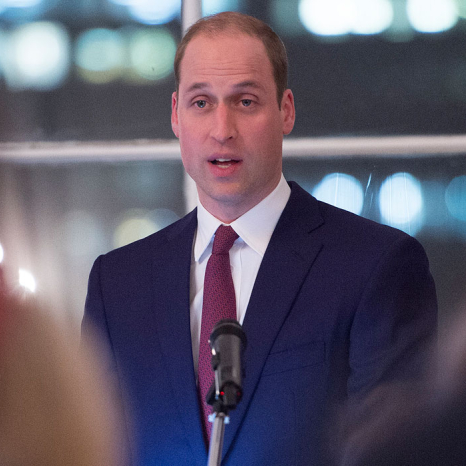
A speech by The Duke and Duchess of Cambridge and Prince Harry at the Heads Together event, London 2017
It is no exaggeration to say that conversations – simple conversations – can be life-changing: in a workplace, in your kitchen at home, with a friend, family member or...
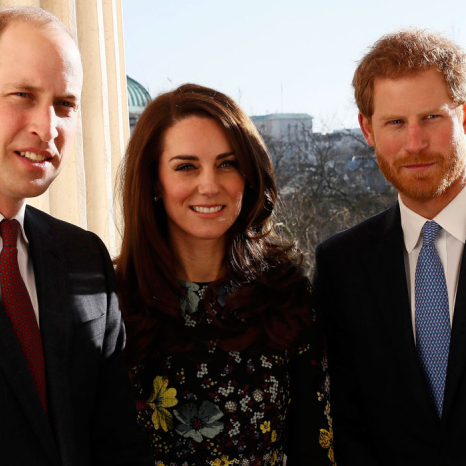
The Duke and Duchess of Cambridge, and Prince Harry attend charity Christmas party
19 December 2016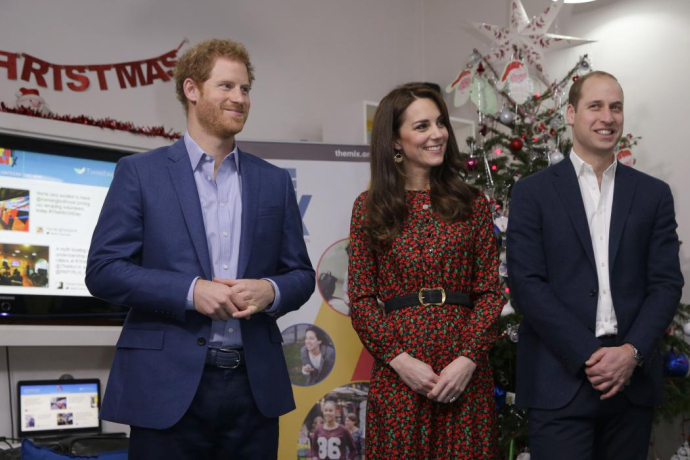
A speech by The Duke of Cambridge at the Heads Together Unilever Conference
Without employers committed to changing attitudes, we would be pushing a rock uphill – but, with you, we can and will change the way we think about mental health in this...
A speech by The Duke of Cambridge at the third International Conference on the Illegal Wildlife Trade
We can win this battle. And in doing so we can take a small, but very important step in reminding ourselves that we are capable of rising to the challenges of our age
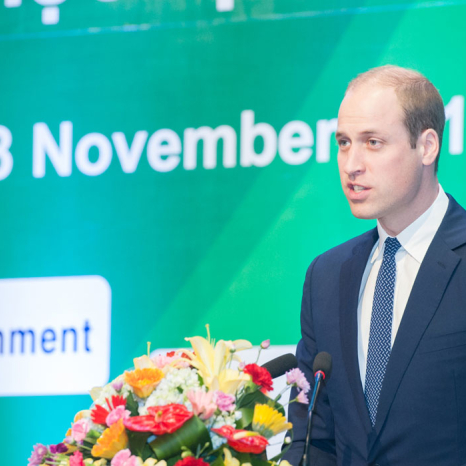
A speech by The Duke and Duchess of Cambridge and Prince Harry for Heads Together on World Mental Health Day
To us, mental health first aid means getting in there early to support people, before what they're going through becomes more serious or even clinical.
A speech by The Duke of Cambridge at the launch of Canada's contribution to The Queen's Commonwealth Canopy
Her Majesty is immensely grateful to you, and the people of Canada, for the leadership you have shown in making this contribution
A speech by The Duke of Cambridge at Tusk's Time for Change event, The Shard, London
We have the opportunity to end, once and for all, the mixed messages we have sent for too long about the value and desirability of wildlife products
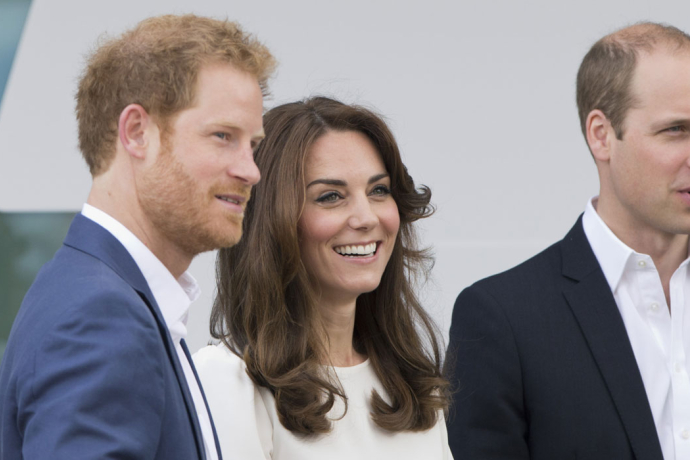
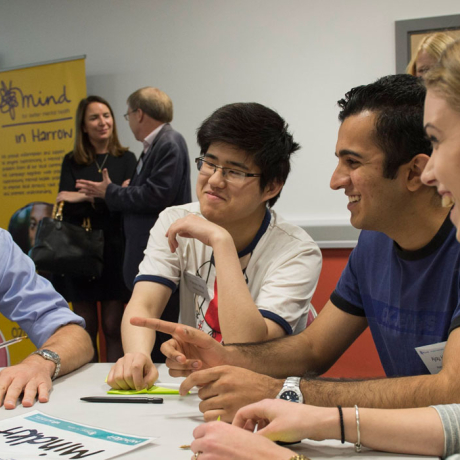
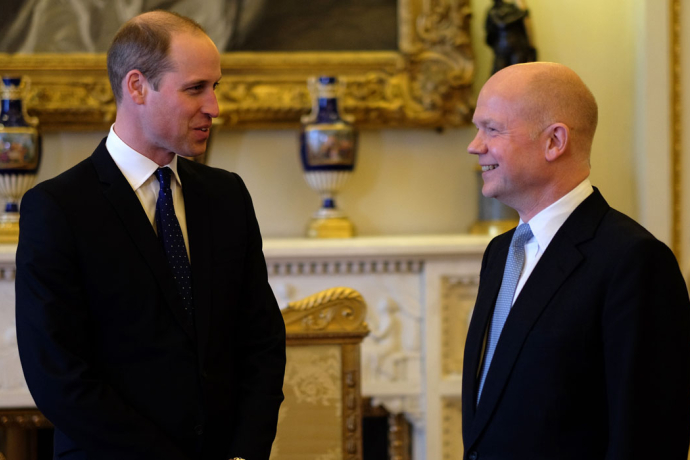
A speech by The Duke of Cambridge at the United for Wildlife Transport Taskforce declaration signing
Ladies and Gentlemen, thank you so much for joining us here at Buckingham Palace for the signing of this declaration. Lord Hague, on behalf of everyone here, can I say a huge...
Combatting the illegal wildlife trade
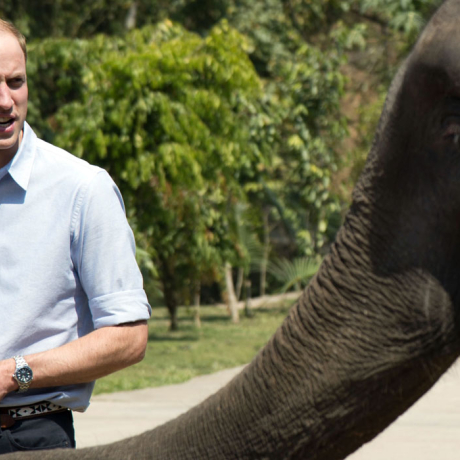
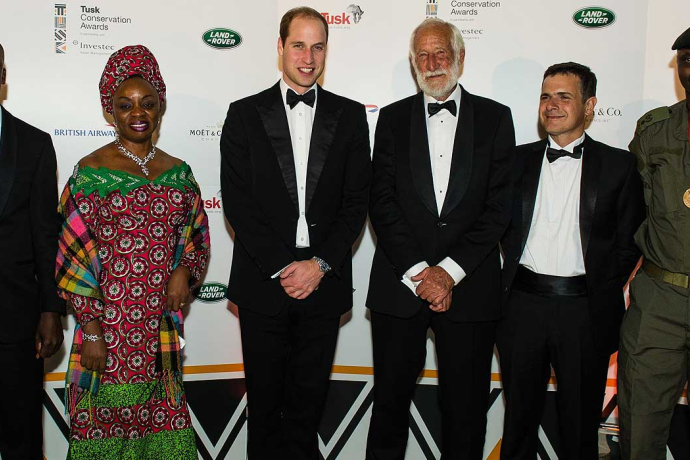
A speech by The Duke of Cambridge at the Tusk Conservation Awards 2015
This is the sharp end of the human impact of one of the world's most pressing conservation crises.
A speech by The Duke of Cambridge on the illegal wildlife trade for Chinese television
At this rate, children born this year – like my daughter Charlotte – will see the last wild elephants and rhinos die before their 25th birthdays.

